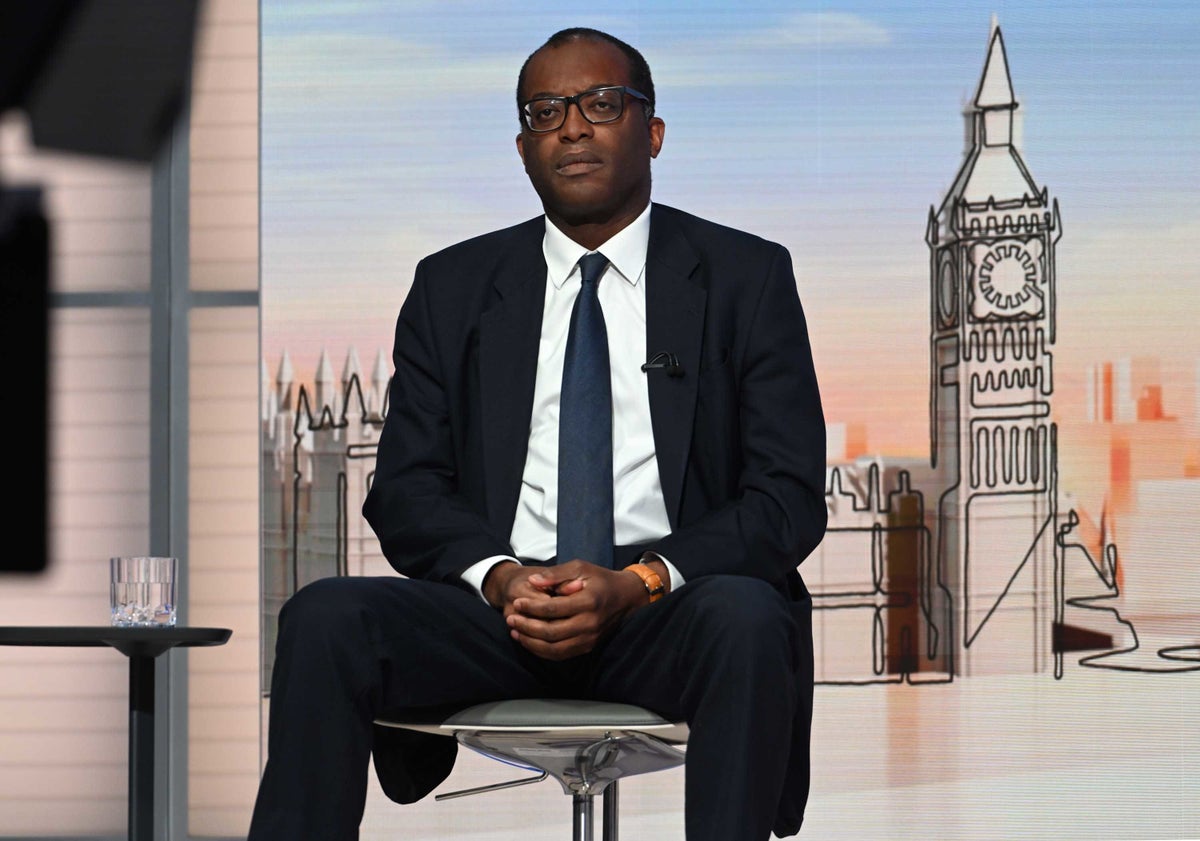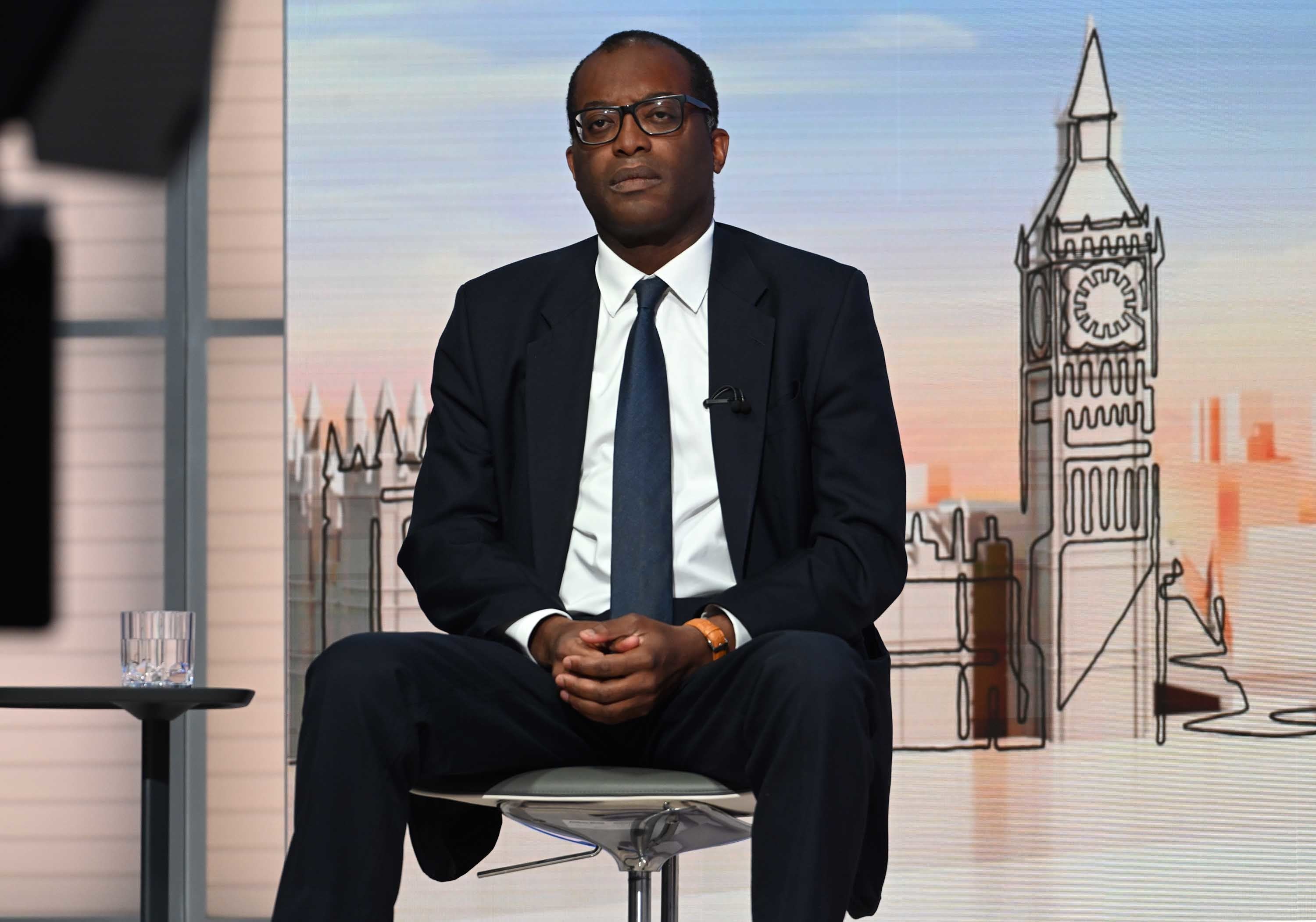
The pound has steadied in Asia after dropping to an all-time low in the fallout from the UK’s tax-cutting mini-Budget.
Kwasi Kwarteng’s economic plan, which has faced criticism that it mainly benefits the wealthy during the cost of living crisis, has spooked markets since it was revealed last week.
The pound hit a record low against the dollar on Monday. It fell by more than 4 per cent to just 1.03 dollars in early Asia trading in the morning - the lowest dip since decimalisation in 1971.
Sterling started to recover ground to around 1.07 dollars by Monday night. The pound sat around 1.08 dollars by 7am in early trading on Asian markets on Tuesday.
Economists warned the currency could still fall to parity with the dollar this year for the first time in history.
The British chancellor declined to comment on the pound dropping to an all-time low on Monday.
Mr Kwarteng previously defended the tax-slashing measures against criticism the rich will mainly reap the benefits. He said they “favour people right across the income scale” and hinted more cuts were on the way.

The government pitched the mini-Budget as a plan to boost UK economic growth.
It contained a host of tax cuts, including the abolishment of the top rate of tax for the highest earners, scrapped a planned tax increase on big business profits and also got rid of the cap on bankers’ bonuses.
The tax cuts were estimated to be worth £45m in total.
The Treasury moved to settle the markets with the promise of a Budget next spring as sterling tumbled to its lowest level.
On the same day, the Bank of England made an emergency invention when it pledged to do whatever it takes to conquer inflation.
Additional reporting by PA







